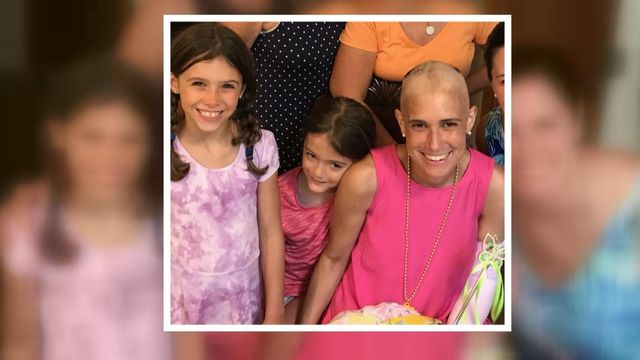Woman's full life illustrative of Duke institute's commitment to 'War on Cancer'
The Duke Cancer Institute was one of the original eight cancer centers in the country to carry out the effort. One patient is very familiar with Duke's work and how they remain very much at the forefront.
Posted — UpdatedNixon signed the National Cancer Act to expand research and eradicate cancer as a major cause of death.
The Duke Cancer Institute was one of the original eight cancer centers in the country to carry out the effort. One patient is very familiar with Duke's work and how they remain very much at the forefront.
"The diagnosis came out of nowhere," said Renee Garber.
She had cancer. In 2016, Garber - then 34, a mom of two small children - had that dreaded word applied to her.
"My world kind of crumbled for those first few days," she said.
It started with a lump in her breast.
"I did chemo followed by radiation, and then ongoing hormone therapy."
She has undergone all of her breast cancer treatment at the Duke Cancer Center. In May 2020, the cancer had spread to her liver, her stomach and her bones.
"They gave me six months to a year, so that's really hard. but I passed that!"
With more chemo - and new drug therapies that target gene mutations in her cancerous cells - Garber went on to celebrate her 40th birthday this year. She's traveled. To Arizona, to New York City.
"Right now, I'm doing wonderfully."
But if she were around 50 years ago and diagnosed with breast cancer, it would have been different.
"Breast cancer is one of the cancers where enormous strides have been made in survival."
Doctor Steven Patierno of the Duke Cancer Institute is widely known for his research in cancer control. In 1971, effective treatment was scant.
"There were no screening mechanisms, there were no mammograms, no colonoscopies."
Since then, Duke has loomed as a citadel in the war on cancer.
"In this laboratory, much of the work focuses on prostate cancer," said Patierno.
Duke researchers, for example, have found what Doctor Patierno calls an Achilles' heel of prostate cancer: the tumor, he says, is addicted to certain nutrients.
That's led to clinical trials of drugs that cause cancer cells to die faster. Also, several drugs to treat brain cancer and advanced breast cancer were developed at Duke.
"By having multiple groups working in the same space, we're stimulating collaboration and cross-seeding of important breakthrough ideas."
Ideas that make cancer patients like Garber do wonderfully.
"I've always felt fortunate to have Duke and UNC in my backyard."
Maybe someday we'll be fortunate to delete that dreaded word from our vocabulary. Garber returns to Duke every four weeks for her chemo drug therapy.
Her cancer has stabilized, which means it doesn't show signs of growing. Still, she plans to keep doing wonderfully for a good while to come.
Related Topics
• Credits
Copyright 2024 by Capitol Broadcasting Company. All rights reserved. This material may not be published, broadcast, rewritten or redistributed.




